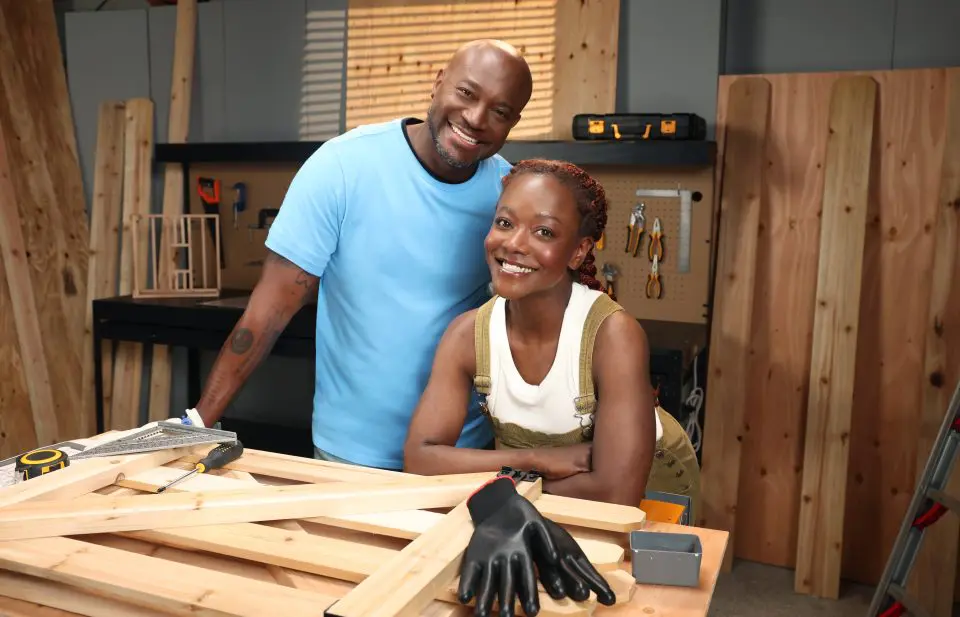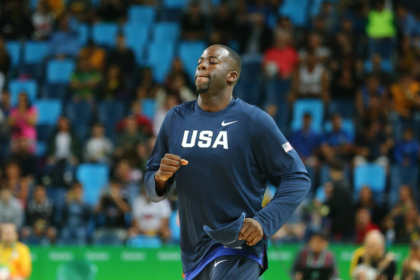
Broadway veteran and “How Stella Got Her Groove Back” star Taye Diggs has built a career spanning theater, film and television over more than two decades. From his breakout role in the original Broadway production of “Rent” to starring in hit films like “The Best Man” franchise, Diggs has become a beloved figure in entertainment. But beyond the spotlight, the 54-year-old actor has taken on a deeply personal mission: advocating for mental health awareness.
Diggs discussed his journey as a caregiver, the challenges of navigating mental health stigma in the Black community, and his partnership with the “Live Your PosSCZible” campaign. His message is clear: mental health conditions don’t define a person’s potential, and families can thrive when they choose understanding over fear.
How do you think the Black community should approach mental health, particularly schizophrenia, as our understanding grows?
That’s a great question. First, I think we need, and I can only judge from my own experience, but I grew the most from locking in with my sister and being as supportive as possible. I can’t lie. I’ve been learning so much with this partnership with the Bristol Myers Squibb and Live Your PosSCZible. I was fortunate enough to have them scoop up my sister and myself, and give us a platform to let people know that life doesn’t have to end.
No one has to be led by fear when they are told that someone or when they realize that someone or their loved ones has schizophrenia or the symptoms of such. With my sister, I was forced to accept, listen and then learn. And through those steps, support, I have to say, it’s been a trip. But watching her receive the support that we and my other family members have given her has really helped her thrive. I feel very fortunate because she’s walking around with a job and laughing and having going to social events and it’s been pretty great lately.
What advice would you give families who see early signs of schizophrenia? What signs did you notice with your sister?
It was growing up with my sister. I didn’t see any real change in her behavior until her 20s. And some of her behavior would be erratic and just not acting like herself and removing herself from the family and social events at certain times. At other times, doing the exact opposite, not knowing where she was.
I want to kind of keep some of this under wraps because it’s my sister’s business. But very different behavior from what I was used to when we were growing up. She was a dancer, a model and very artistic. But before her diagnosis—before she started seeing a wonderful therapist and taking the right medication—she drifted away from all of that
But once we found out what was going on, first there was a feeling of relief, because we could put a name to it. Then there was kind of fear because when you hear the words schizophrenia, you just think of how it’s portrayed in the movies and on TV, where people are talking to themselves and running around.
It doesn’t tell a full, well rounded story of each specific case. And I learned that through my sister and through doing the research. Also through Live Your PosSCZible with Bristol Myers Squibb, I’m always learning. They help both of us, my sister and myself, because everybody’s situation is completely different.
That there are people that you don’t have to shy away, you can kind of lean into this new opportunity to get to know your loved one even better, because people can still have jobs. Just the other day I was hosting with my sister, this Live Your PosSCZible showcase for all of these young people and older people alike, we are on stage just expressing through art in this amazing way. It was so beautiful to see and I was on stage.
I remember saying, I didn’t know what to expect. I didn’t know if people would have episodes. I was in awe, and I would love for people to get an opportunity to realize that people that are living with schizophrenia can do these things, and to do them to the utmost. It was amazing. If people want to check it out, they can go to liveyourpossczible.com and they can learn more about that series and I think they got some shots of it, the amazing talent that’s out there.
What message of hope would you share with families dealing with mental health stigma and shame?
Speaking just from experience, in our own community it can be so easy to write someone off as crazy, and in my opinion one of the worst things you can do because one, it’s just so general and two, it’s incorrect. These are living, breathing, complicated, complex, beautiful, talented people that are wired just a little bit differently than we think they should be.
As I said before, leaning into these people’s situations, I’ve found more similarities with my sister and myself than I thought ever existed and that also helps me deal with her and just anybody that’s different from myself, kind of finding the similarities.
As a community if we can just be patient with ourselves as well as each other and try to learn and listen as opposed to just blindly taking these broad strokes and just generalizing, I think we can start there and researching, going to websites like liveyourpossczible.com and learning just learning more about it. People will be very surprised.
After that, then remembering not to be shamed because after some time I was beginning to feel bad about myself for making assumptions and for pulling away emotionally and not really listening or keying in to my sister, but that doesn’t help anyone, so once I was able to get over that, lock in and support, really good things started to happen.
If you were giving a graduation speech at an HBCU, what would your title be and what would you challenge students to do?
Oh, you are throwing them at me brother. What would the title of the speech? I’ll keep it simple: “Don’t be afraid to be you.” Especially in this time of social media and everybody’s on Instagram and everybody’s posting, screaming at you, telling you what to do and how to manifest this and what not to do and how to spend your money, and it’s really easy to get caught up in what other people think you should be.
Speaking from personal experience and my sister and this Live Your Possczible kind of trust, I think it’s important for people to not lose who they are as a person and not be afraid to stand on that. It’s okay to take advice and you can always improve, but make sure that you keep who you are and what makes you special and what’s different about you, because to me that’s what’s far more interesting.
And I think people might have an easier time of finding what their passion is or why they’re here, what they’re meant to do personally.

-PICTURED: Taye Diggs and his sister
-PHOTO by: Michael Simon/startraksphoto.com
-MS17282
Editorial – Rights Managed Image – Please contact www.startraksphoto.com for licensing fee Startraks Photo














